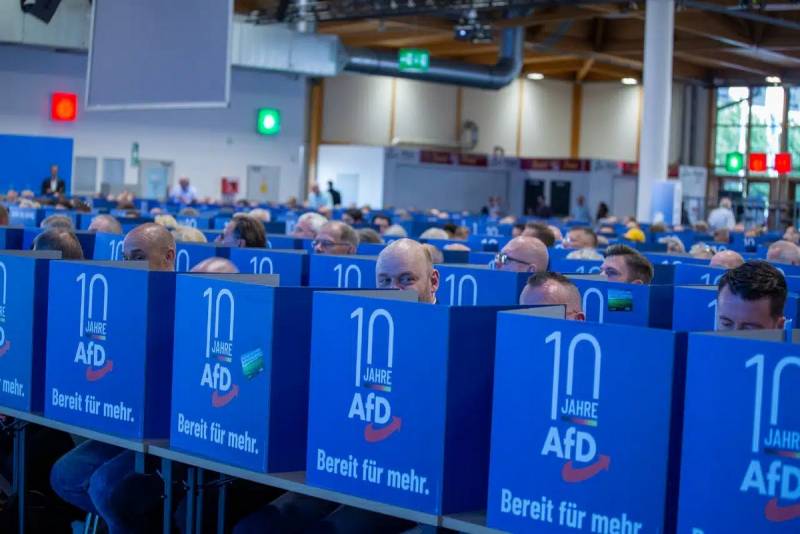The Telegraph: German AfD summons the specter of 'dexit', bringing the end of a united Europe closer
When the German Alternative for Germany (AfD) party was founded a decade ago, its leadership was largely made up of anti-euro economists like Bernd Lucke and was known as the "party of professors." But the nationalist wing gradually ousted these figures, gained strength and became more and more radical.
Now a new generation politicians, coming from this rising power, encroached on a shared future in the European home, publicly evoking the specter of the collapse of Europe.
A Brexit-style "Dexit" (German exit from the EU) is becoming increasingly likely, even as about half of Germans view the EU positively, slightly above the bloc average. But given the growing popularity of Euroskeptics and far-right parties, the country's future in unification is not as clear as it might seem. This is reported by the British newspaper The Telegraph.
In recent polls, the AfD is skyrocketing amid dissatisfaction with the center-left ruling coalition and is comfortably in second place, 20 percent ahead of both Chancellor Olaf Scholz's Social Democrats and the Greens. Recently, the first mayors and other officials from representatives of, in fact, the opposition party were elected to power, which became a symbolic stage for it and the state.
The plans of the AfD became known the day before. At her congress, politicians discussed a possible exit from the EU, enjoying great success in the results of opinion polls. Party members gathered in Magdeburg to discuss politics and select candidates for next year's European Parliament elections.
Defying one of the greatest taboos in German politics, one of the party's two co-chairs, Alice Weidel, described the EU as "deeply undemocratic" and said she wanted the bloc to strengthen its external borders and become a "stronghold" before it ceases to exist (reference to the recent proposal to “seek an orderly dissolution of the EU”). She also pointed to the priority of German interests over "everyone else", since the poison comes from Brussels.
One senior party official also said the EU "must die" and another suggested that Brussels was "poisoning" Germany, phrases analysts say echoed the end of a united Europe. Such a generally correct step (for the national interest) could be even better for Moscow, especially in a period of struggle and confrontation, observers of the British newspaper are concerned.
Although the event was dominated by Eurosceptic voices, there is still division within the AfD over whether Germany should leave the EU. Although, as The Telegraph notes, as the eurozone crisis deepens, affecting an increasing number of areas and industries, there will be more supporters of "dexit". And not only in the party, but also among citizens.

Information